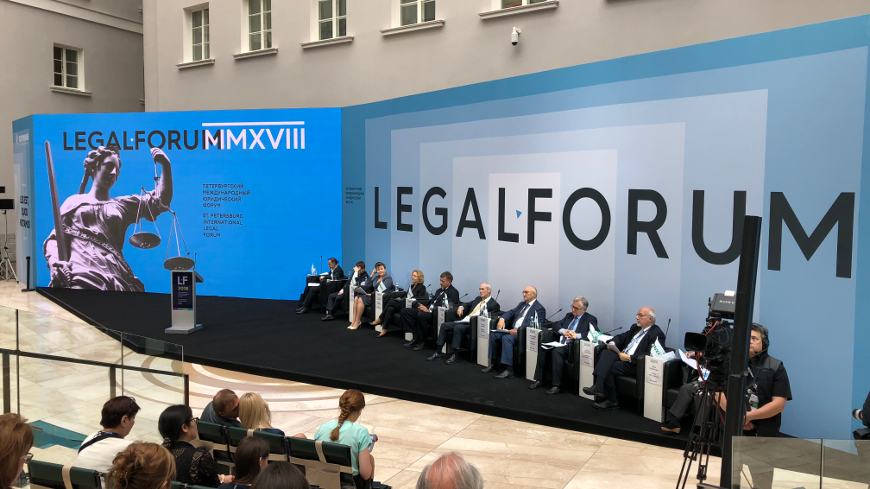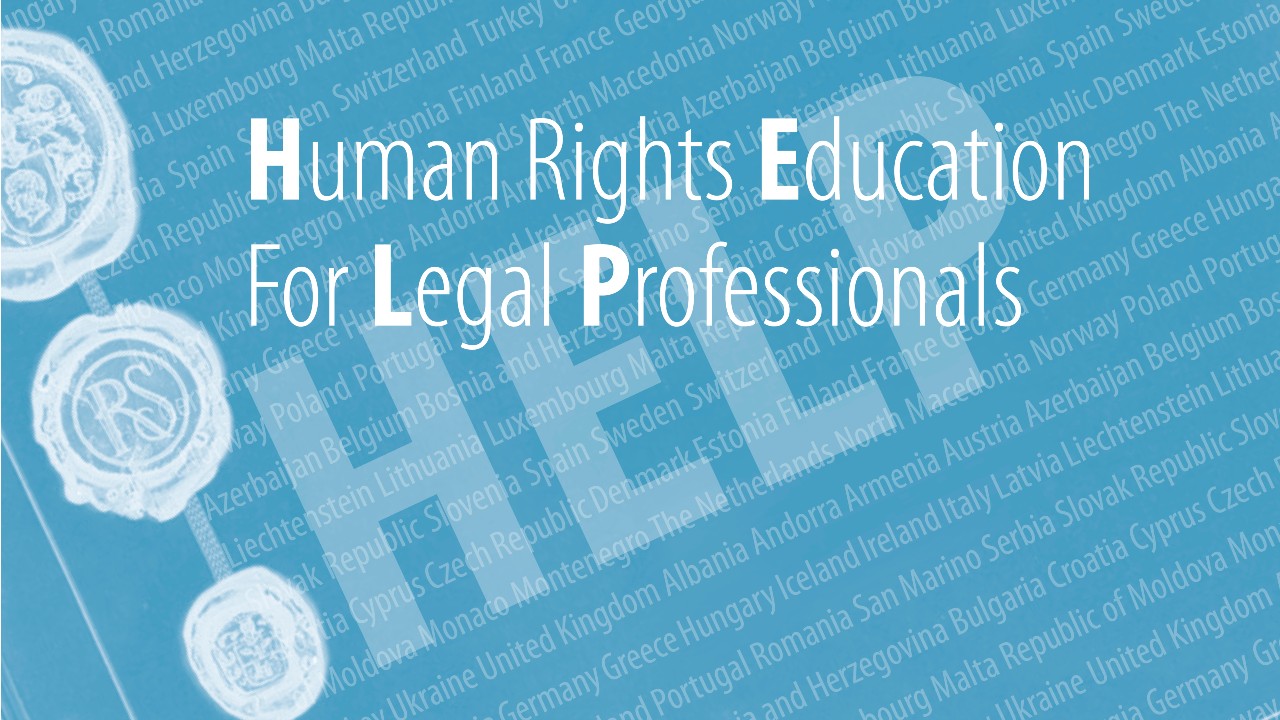The Human Rights Education for Legal Professionals (HELP) Programme of the Council of Europe and its unique course under preparation Human Rights in Sports was presented in the Saint Petersburg International Legal Forum.
The course was presented in a session chaired by Tamara Shashikhina, Director of the European Studies Institute of MGIMO University, and one of the experts participating in the HELP course on sports. Director General for Human Rights and Rule of Law of the Council of Europe, Christos Giakoumopoulos, mentioned the potential to protect athletes’ rights provided by the European Convention on Human Rights (the Convention) and the European Court of Human Rights. He had previously participated in one of the landmark sessions of the Forum “European Convention on Human Rights and Russian Law: 20 Years Together” delivering key messages in favour of cooperation and dialogue even when decisions by the European Court of Human Rights concerning Russia may cause tension sometimes.
Following the intervention of Natalya Parshikova, State Secretary – Deputy Minister of Sports of the Russian Federation, who stressed the need to safeguard human rights in sports and protect athletes, the HELP course on Human Rights in Sports was presented by Eva Pastrana, Head of Council of Europe HELP Unit.

© Council of Europe
The course is made of the following modules:
- Introduction
- Sports arbitration and litigation – Fair trial (Article 6)
- Privacy, F. of expression & assembly (Articles 8, 10 and 11)
- Life and physical integrity (Articles 2, 3 and 4)
- Liberty and Security (Article 5)
- Prohibition of discrimination
- Anti-doping and human rights
- Manipulation of sports competition and human rights
- Spectators and safety and human rights
This presentation was complemented by interventions from the Swiss prominent sports lawyer Philippe Bartsch and former Olympic champion Svetlana Zhurova, Deputy of the State Duma of the Federal Assembly of the Russian Federation, First Deputy Chairman of the Committee on International Affairs of the State Duma.
Two other sessions on sport-related issues took place, which shows the growing relevance of the topic at international level, underlined also by the Prime Minister of the Russian Federation Dmitry Mevdeved in his inaugural speech where he mentioned that sports and law may be an emerging discipline.
Another session where the Council of Europe figured prominently was the session “At the edge between Law and ethics: modern challenges in the field of Latest Biomedical Technologies” chaired by Council of Europe Head of Bioethics Unit, Laurence Lwoff, alongside the Russian Federation Deputy Health Minister Salagay Oleg and the European Court of Human Rights Judge Dedov Dmitry. Siobhan ÔSullivan, member of the Council of Europe Committee on Bioethics presented some of the key ethical and legal issues raised by the latest technological developments in biology and medicine. Former Council of Europe Director of Human Rights and Rule of Law, Philippe Boillat, in his intervention, highlighted the role of the European Court of Human Rights and the Convention on Human Rights and Biomedicine (the Oviedo Convention) and mentioned the HELP course on Bioethics.

© Council of Europe
The VIII St. Petersburg International Legal Forum (May 15-19 2018) was attended by 4500 delegates from 90 countries, including 95 official delegations headed by Ministers and Deputy Ministers of Justice, Presidents of Supreme and Constitutional courts and Chairmen of international organisations. Video recordings of the events including above-mentioned sessions are placed on the official website of Saint Petersburg International Legal Forum.
Also in the month of May, the Council of Europe HELP course on Child-friendly justice was presented in the UNESCO 2018 World Congress on Justice for Children, in a dedicated session on “Children involved in the process of violent radicalisation: perspectives from criminal law”.
The HELP course was developed jointly with the Council of Europe Children’s Rights Division to strengthen and harmonise the knowledge of the relevant European standards on child-friendly justice across the Council of Europe member states. It aims to ensure that professionals working with the competent authorities have comprehensive and professional knowledge of the European standards in the field.
There are nine course modules:
- Introduction
- Child-friendly justice
- Non-judicial proceedings
- General elements
- Interactions with children in judicial systems - main challenges
- Interdisciplinarity
- Deprivation of liberty
- Violence against children
- Migration and asylum
The course is available on the HELP e-learning platform, upon the creation of an account.
- Course brief of HELP course on Child-friendly Justice and Children’s Rights
- Presentation of HELP, Saint Petersburg International Legal Forum, Saint Petersburg, 16 May 2018
- Presentation of HELP, UNESCO 2018 World Congress on Justice for Children, Paris, 28 May 2018
- Speech of Christos Giakoumopoulos, Human rights in sport, Saint Petersburg International Legal Forum, Saint Petersburg, 16 May 2018
- Speech of Christos Giakoumopoulos, Judgments of the European Court of Human Rights and Russian Law: 20 years of Dialogue and Interaction, Saint Petersburg International Legal Forum, Saint Petersburg, 16 May 2018





